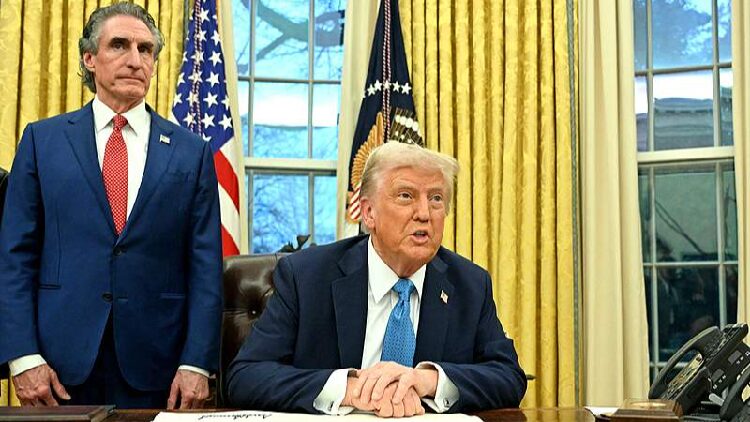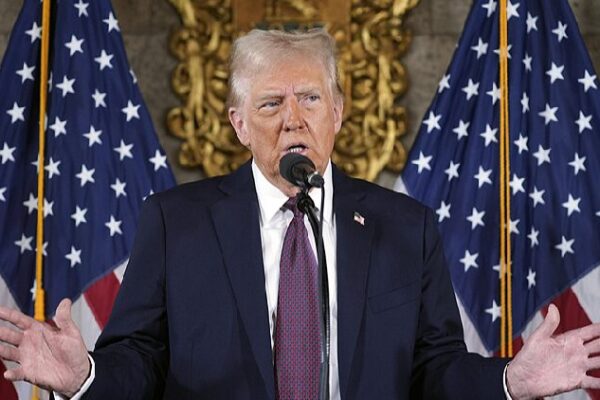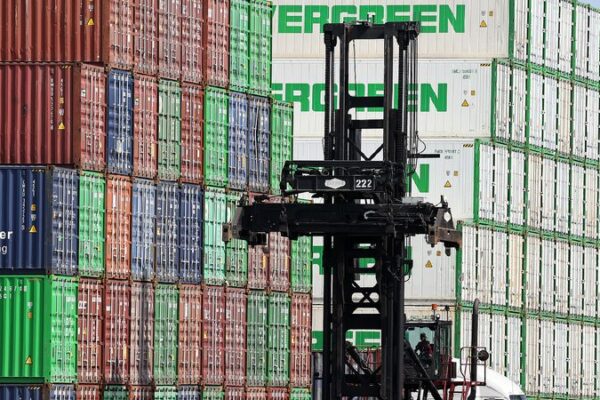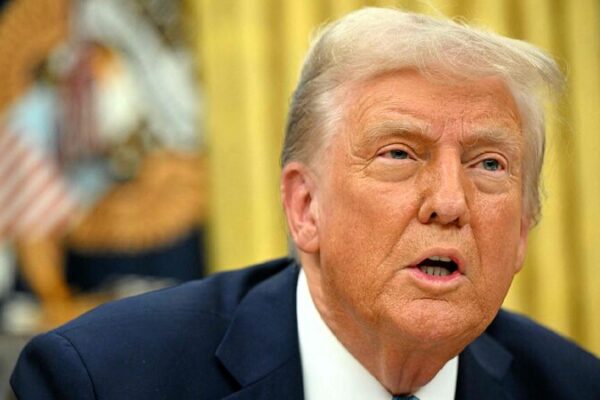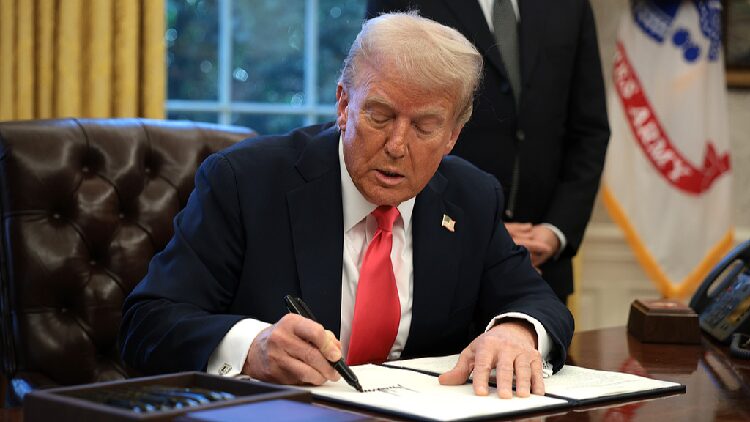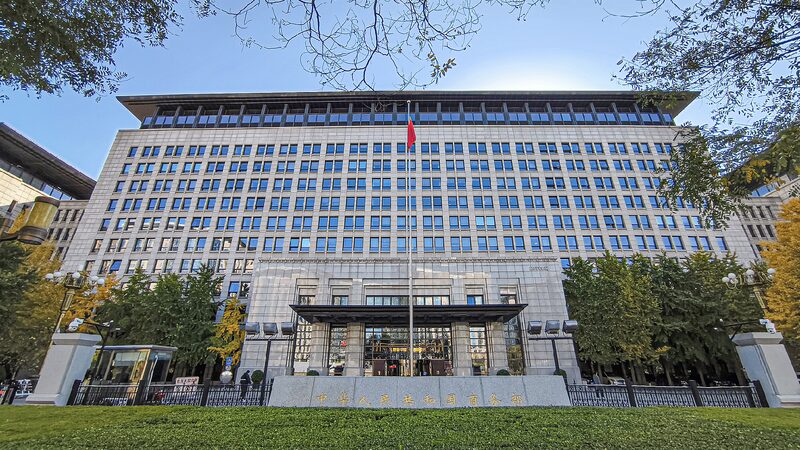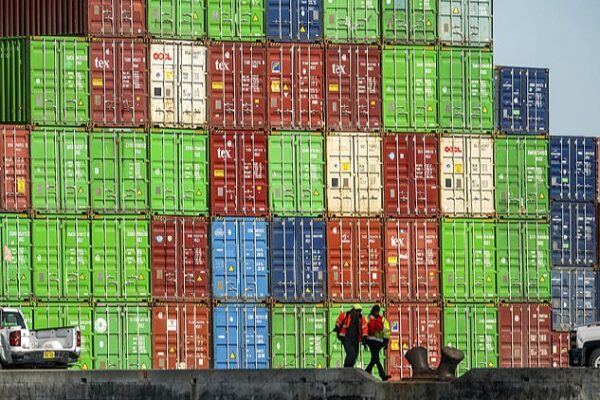The United States’ recent decision to impose tariffs on imports from Mexico, Canada, and the Chinese mainland has ignited global criticism and concern. Nations affected by these tariffs are promising swift responses, raising fears of an escalating trade war.
South Korea Vows to Respond
South Korea’s Trade Minister Cheong In-kyo announced on Monday that the government and private sector will unite to effectively counter the U.S.’s protectionist trade policies. “As the new U.S. administration actively utilizes tariffs under the ‘America First’ policy, we must efficiently and effectively respond to the possible effects on our country under different scenarios,” Cheong stated, according to the Korea Times.
The South Korean trade community has expressed deep concerns over President Trump’s tariffs on Canada, Mexico, and the Chinese mainland, fearing negative impacts on exports and local companies.
European Union Criticizes U.S. Tariffs
The European Commission on Sunday criticized the U.S. decision, stating that the tariffs disrupt global trade and harm all parties involved. “The European Union regrets the U.S. decision to impose tariffs on Canada, Mexico, and the Chinese mainland,” an EU spokesman said. He emphasized the importance of open markets and adherence to international trade rules for strong and sustainable economic growth.
German Vice Chancellor and Minister of Economics Robert Habeck warned that the U.S.’s move is “a very bad alternative,” noting that Europe would retaliate if necessary.
Mexico Plans Countermeasures
Mexican President Claudia Sheinbaum instructed the Secretariat of Economy on Saturday to implement tariff and non-tariff measures in defense of Mexico’s interests. Sheinbaum emphasized that problems are not solved by imposing tariffs but through dialogue and cooperation. “We categorically reject the White House’s slander against the Mexican government of having alliances with criminal organizations, as well as any intention of intervention in our territory,” she stated on social media.
Sheinbaum called for collaborative efforts between the United States and Mexico to combat criminal groups, under the principles of shared responsibility, mutual trust, and respect for sovereignty.
Canada Retaliates with Its Own Tariffs
In response to the U.S. tariffs, Canada announced retaliatory measures late on Saturday. Prime Minister Justin Trudeau declared that Canada will levy 25-percent tariffs on 30 billion Canadian dollars (approximately $21 billion) worth of American goods starting Tuesday. “More non-tariff trade actions are still to be decided,” Trudeau added, suggesting possible restrictions on exporting critical minerals and energy products to the United States.
Chinese Mainland Warns of No Winners in Trade War
The Chinese mainland firmly opposes the U.S. decision to impose a 10-percent additional tariff on imports and will take necessary countermeasures to defend its legitimate rights and interests, according to a Chinese foreign ministry spokesperson on Sunday. “There is no winner in trade and tariff wars,” the spokesperson stressed, adding that the U.S.’s unilateral tariff hikes severely violate World Trade Organization (WTO) rules and do not benefit either side.
The spokesperson also highlighted the Chinese mainland’s efforts in counternarcotics, noting that fentanyl is an issue for the United States. “In the spirit of humanity and goodwill, we have supported the United States in responding to this issue,” the spokesperson said.
Expert Opinion: Unilateral Actions Harm Global Trade
Professor Ji Wenhua from the University of International Business and Economics’ School of Law criticized the U.S.’s approach. “The second Trump administration believes that fentanyl poses a severe threat to American society and wishes to have domestic challenges resolved by other countries who, under U.S. pressure, would intensify their enforcement efforts. However, such unilateral trade coercion violates WTO rules and is the incorrect way to solve the problem,” Ji stated.
He warned that the U.S.’s unilateral actions could provoke retaliation from other WTO members, potentially leading to a global trade war. “In the long run, these actions will backfire. Higher tariffs will increase prices for imported goods, burdening American consumers and undercutting the competitiveness of U.S. companies globally,” Ji concluded.
As nations around the world respond to the U.S.’s tariff impositions, concerns are growing over the potential escalation of trade tensions. Collaborative efforts and adherence to international trade rules are being urged to prevent a global economic fallout.
Reference(s):
cgtn.com
